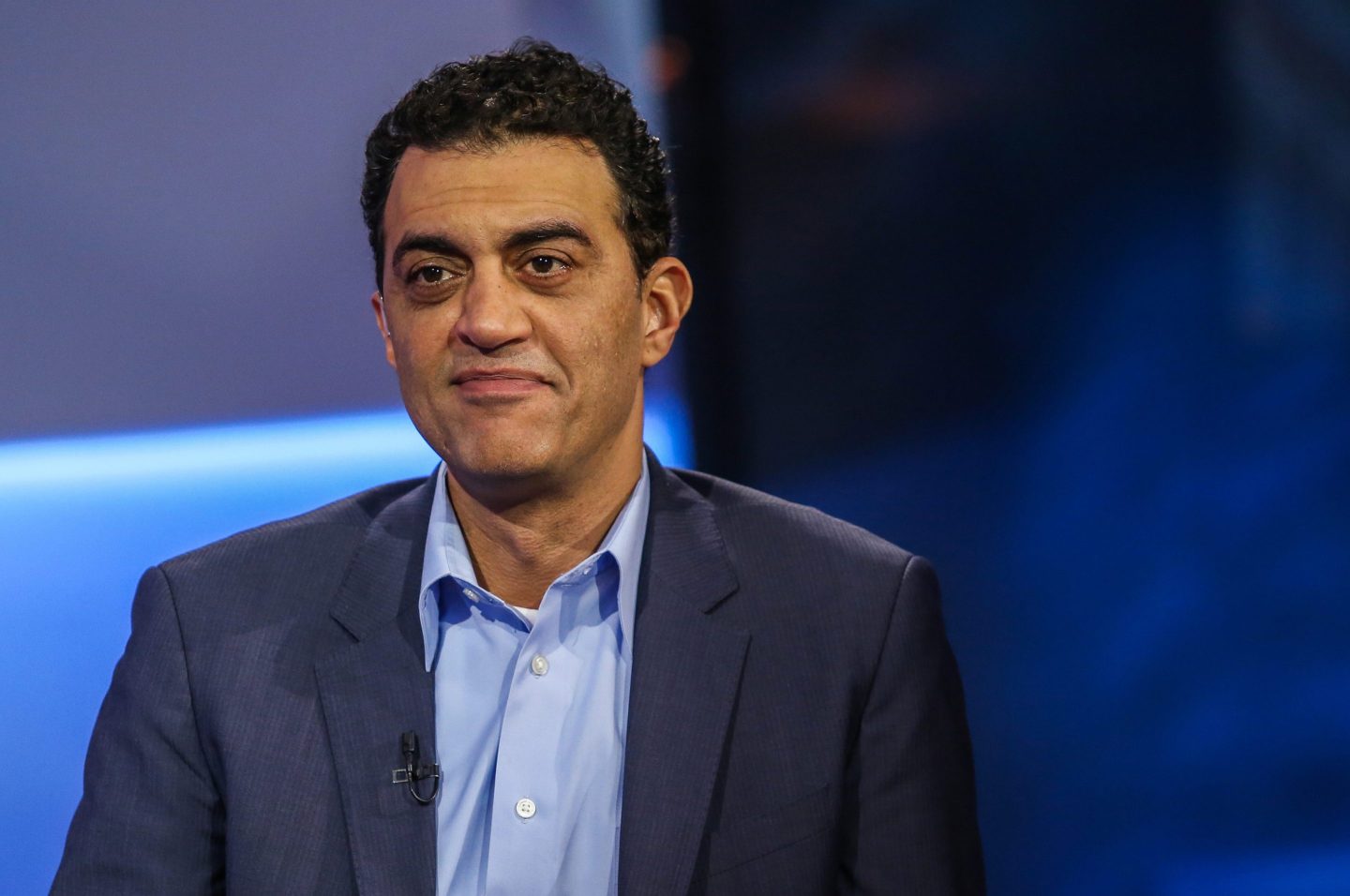Notwithstanding frequent assertions to the contrary by lawyers representing Russia in that nation’s $22.5 billion lawsuit against the Bank of New York Mellon (BK), the bank has never admitted “criminal culpability” for a rogue employee’s criminal wire-transfer scheme in the late 1990s, according to a letter recently written to the bank by the federal prosecutor’s office that investigated the bank.
The U.S. Attorney’s Office for the Southern District of New York (in Manhattan) — which investigated the scheme from 1999 until 2006 — made the statement in this letter, dated July 29, which Fortune obtained Tuesday.
The clarification was prompted by the highly unusual case that the Russian Federal Customs Service filed against the Bank of New York Mellon in May 2007. Though the suit is being brought under America’s civil RICO statute — the Racketeer Influenced and Corrupt Organizations Act of 1970 — Russia filed the case in one of its own commercial courts, known as the Arbitrazh Court for the City of Moscow. It appears to be one of the first times anyone has ever filed a RICO suit in a court outside the United States.
As I wrote in this feature story about the case in the Sept. 29 issue of Fortune, there is considerable doubt among experts on the Russian legal system about whether such courts have the judicial independence needed to rule impartially in a high-stakes case in which the Russian government is a litigant.
The suit stems from the conduct of Lucy Edwards, who had been a Bank of New York vice president — one of about 1,700 at that time — when she was terminated in August 1999. Edwards and her husband, Peter Berlin, pleaded guilty in February 2000 to having helped depositors of a Russian bank smuggle about $7.5 billion out of Russia from 1996 to 1999 through accounts Berlin had opened, with Edwards’ assistance, in a Bank of New York branch in Manhattan. The bank was never charged in connection with the case, but did enter into a non-prosecution agreement on Nov. 8, 2005, in which it agreed to pay a $14 million fine, acknowledged various regulatory lapses, and accepted “responsibility” for what had happened.
In that story I reported that federal prosecutors had, in August of this year, issued an amended press release to replace the one that had originally announced the bank’s entry into the non-prosecution agreement. The original press release had, among other things, stated that the bank, by entering into the agreement, “has admitted its criminal conduct.” Steven C. Marks of Miami’s Podhurst Orseck, the plaintiffs lawyer who is acting as Russia’s lead lawyer in the case, has frequently cited the release as proving that the bank has admitted criminal culpability. For instance, at a teleconference he set up for bank analysts July 16 (the evening before the bank’s second-quarter earnings announcement), he cited the release in arguing that the bank had already admitted “criminal responsibility for money-laundering.” (You can listen to the teleconference here.)
But the nonprosecution agreement had actually resolved two criminal inquiries — one pertaining to Edwards’s conduct and the other pertaining to a completely unrelated fraudulent loan scheme aided by managers at a Bank of New York branch in Island Park, N.Y., on Long Island. The amended release clarified that the bank had only admitted criminal conduct in connection with the Island Park inquiry. (Here’s the original release; here’s the amended release.)
As reported in the feature story, when I informed Marks of the amended release, Marks expressed exasperation at the “power” of the bank to “influence” the Justice Department to “potentially help the wrongdoer” in pending civil litigation. But he also insisted that the non-prosecution agreement still amounted to an acknowledgment of criminal conduct by the bank, because the bank had acknowledged “responsibility” for what had happened in that document.
However, in the letter Fortune obtained yesterday and is publishing today, the government appears to reject that argument as well, writing: “While the Bank accepted and acknowledged responsibility for the conduct detailed in the [non-prosecution agreement,] the Bank did not admit criminal culpability with respect to the subject of the SDNY USAO investigation,” i.e., the probe relating to Lucy Edwards.
The letter also notes that “statements in the Press Release . . . are not themselves part of any agreement with the Bank.”
As of this writing, Marks has not yet responded to an e-mail seeking comment on the July 29 Justice Department letter, which I sent to him yesterday at about 12:30 pm Eastern Time.
Why does it matter if the bank has admitted criminal conduct? Two reasons. The first relates to a statute of limitations hurdle Russia faces. Lucy Edwards pleaded guilty in February 2000, yet Russia did not file its suit until May 2007. (The statute of limitations for civil RICO suits is four years and, according to the Bank’s lawyers, the applicable Russian statute is even shorter.) Marks has responded that, whether Russian or U.S. law applies, the statute of limitations is subject to a so-called “discovery rule”; i.e., the statute begins running only once a party discovers that he’s been injured (and by whom).
Under that rule, Marks has argued, the statute should not start running until Nov. 8, 2005, when the bank signed the non-prosecution agreement, because that’s the first time Russia discovered that the bank had been criminally involved. Since the bank had until then always protested its innocence, Marks believed that when it entered into the non-prosecution agreement it suddenly reversed its position. This purported about-face is what, he had argued, reset the statute-of-limitations clock. As he argued at the July 16 teleconference “The bank had . . . represented that it had no role in the criminal activity . . . until November 2005.” That was “the very first time” Russia “became publicly aware of involvement by the bank.” (Listen to “Podcast #3 on Marks’s site, available here.)
The prosecution’s clarification seems to wipe out that argument, since no change actually occurred in the bank’s position. (As a backup argument, Marks also contends that one type of relief he seeks under RICO — “disgorgement” — is an “equitable” form of relief, which is not subject to a rigid statute of limitations, but subject only to a more flexible doctrine of time limitation known as “laches.” But most U.S. courts begin their “laches” analyses by looking to the most analogous statute of limitations, which probably just brings Russia back to civil RICO’s four-year limit. There seems, moreover, to be no good “equitable” reason to grant Russia leniency here, since, as explained in my feature story, U.S. prosecutors actively sought the assistance of Russian authorities with their investigation back in 1999, but appear to have been largely rebuffed at the time. For whatever reason, Russian officials at the time were downplaying the gravity of what Edwards had done, and maintaining that most of her illicit wire transfers had not violated Russian law.)
The second reason that the bank’s purported admission of criminal conduct was important to Russia’s case has to do with jurisdiction. The court in which it has filed its case — the arbitrazh court in Moscow — is a commercial court, and is not authorized to interpret “public laws,” which include criminal laws (even Russian criminal laws, let alone American criminal laws). Russia had hoped to circumvent this problem by arguing that there was no need for the arbitrazh court to interpret U.S. criminal statutes, since the bank had already admitted criminal culpability. Thus, the arbitrazh court would only be required to interpret the civil aspects of the RICO law, which were more arguably within its jurisdiction.
Again, this argument would seem to be weakened, if not obliterated, by the recent clarification made by U.S. prosecutors.
Of course, all of this only matters if the court hearing the case has the judicial independence to rule against the Russian government — a big if.
Pretrial hearings in the case are set to resume in Moscow on Oct. 6.











